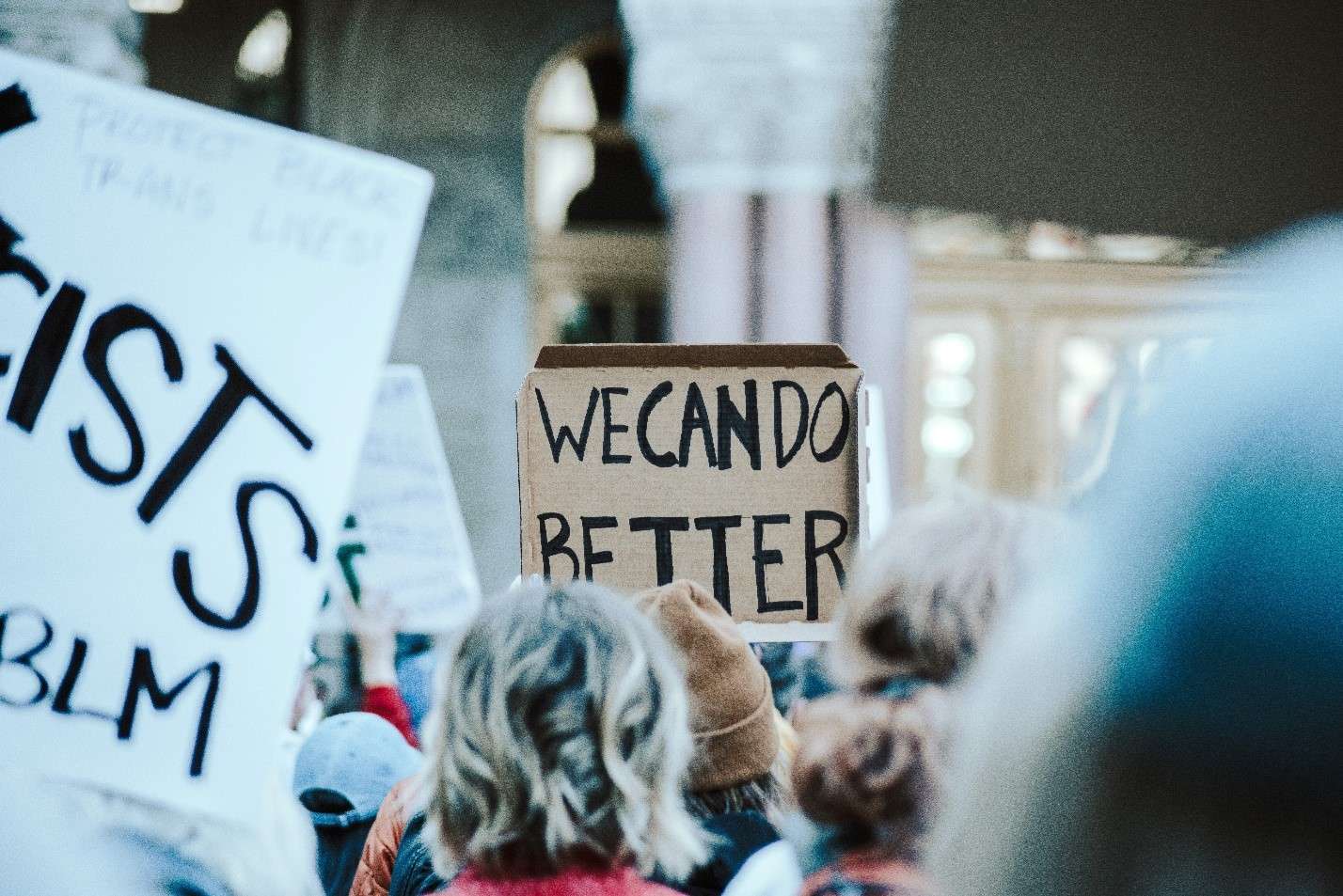
Over the last few years, I have had a personal awakening, as have many around me. I’m a white cis-hetero female, born and raised in the Washington, DC area, and these circumstances of my birth give me a range of privileges. The inequities of the systems we live in are undeniable, even if my privileges make some of these inequities easier to ignore than others. For me as a woman, I’ve learned to never leave a drink unattended in public. But for me as a white person, I’ve never feared a police presence. And for me as a straight person, I’ve never worried that my relationships would endanger me or be illegal.
Truly understanding these differences is recent for me, and it drives me to strive for as much change as I can foster around me, through donations, advocacy, learning, awareness, and more. I want to impact so much, and make the world a kinder, more equitable place for everyone. But some days I wonder if it’s even possible, so this blog post is my personal reflection and a reminder to myself, and whoever needs it, to keep striving.
Each June, company logos change colors and retailers sell merchandise splashed with rainbows. In February, we learn about Black history, and companies often repeat stories about a small subset of influential Black people from around the world while merchandising Black pride. In March, we do the same for women. While this is better than a complete lack of discussion around such issues, this commodification is counter to the equity we want to achieve.
On the other hand, there are many organizations, like DT Global, that genuinely want to celebrate and mark these occasions rather than co-opting them for profit. And these companies know celebrating these occasions each year is only part of the work that needs to be done.
For years, decades, marginalized people have fought for their equality. Historically, the onus of change has been on the groups who are being disadvantaged, unfairly placing on them the burden of systemic issues and the change required for equity. Women demand access to safe and legal abortion and birth control, Indigenous people protest misuse of traditional and sacred lands, Black people create a movement against racist policing, and the Queer community riots against invasion of their spaces.
These fights for diversity, equity, inclusion, and justice are called “the work.” And people who hold privilege are becoming more and more aware of who is doing that work. Shifting the burden of change from the marginalized group to the group(s) in power is key to achievable activism.
I spoke with Cara Gettridge, Senior Director of Human Resources for DT Global US, about DEI, social issues, activism, and change, as it pertains both to DT Global and to us all on a personal level. She was able to put a lot into perspective. One quote from her really stands out: “Be okay with people not being passionate about every single thing.” I know that it can be easy to get sucked into the quicksand of social issues; they are numerous and everywhere. So, it’s important to remember that someone trying to help everyone all the time is not actually helping anyone.
We’ve all heard the airplane warning to place your own oxygen mask on before helping anyone else. This is because you won’t be able to help anyone if you lack oxygen, or you might make an error and do more harm than good. This also applies to the social work we are all trying to do. We must forgive ourselves for not being able to work on every issue, and for not being able to do all the work on a single issue. We must make sure that we focus our own efforts on the issues that we’re truly passionate about, trusting others will do the same.
Social justice is such a widespread and never-ending struggle, it is easy to ask ourselves, “What could a single person change?” But as Cara summarized during our conversation, “Change starts one person at a time,” and from there the change can only become bigger and more collective.
For instance, a single person can correct their own habits of using unnecessarily gendered language, then encourage organizational change for the same. Two people can work together to actively ensure that recruiting pulls diverse candidates for every open position, both internal and external. Many people can work together to encourage a community to explore and heal their trauma together.
The work being done at DT Global for social issues continues. DT Global provides forums for employees to be “unapologetically heard” as Cara put it. We offer annual DEI trainings for all staff and include trainings a part of the process for onboarding new hires. Our holidays are all floating to allow staff to take off the dates important to them socially or religiously. Internships are paid. And we strive to recognize national and global holidays and observances, from Diwali to National Sorry Day in Australia.
In my own sphere of influence, I continually reflect on my interactions and assumptions to identify, understand, and overcome the biases I hold. I donate to organizations that mean most to me—Capital Area Food Bank, Black Lives Matter, Planned Parenthood, community care groups, and others. What more do I want to do?
I want to start an article or podcast group where colleagues can read or listen to stories and ideas, giving them space to learn a new perspective or gain new tools to expand equity in their own lives. I want to fundraise for local and national efforts to safeguard people and their rights to abortion, to vote, and to exist freely. I want to encourage colleagues to act through organized volunteer groups or individual volunteer efforts. I want to keep working for positive change where and when I can.